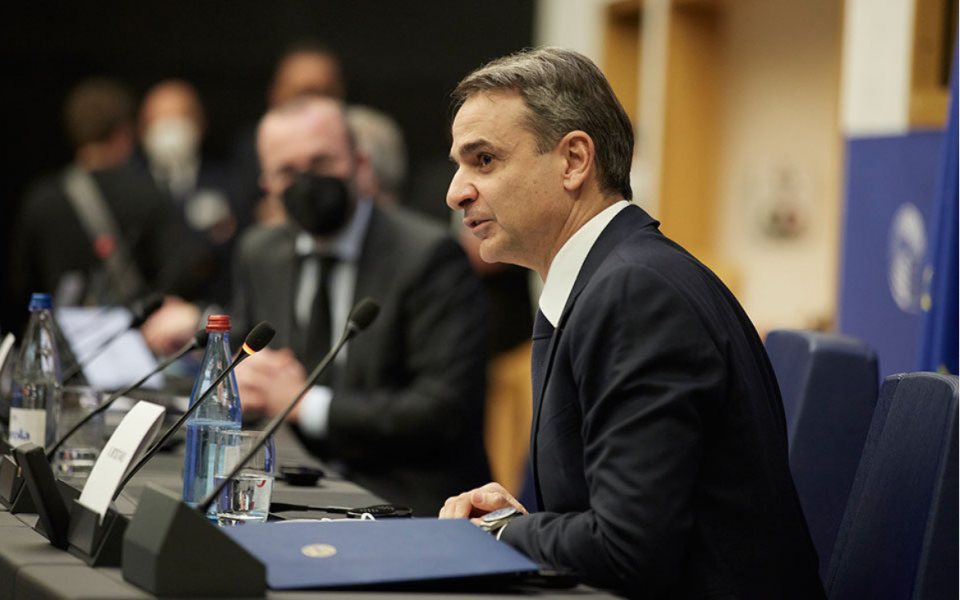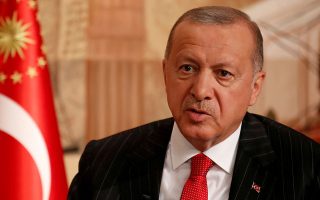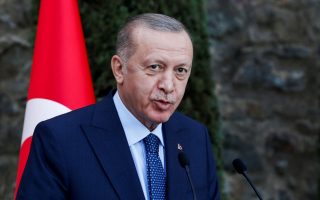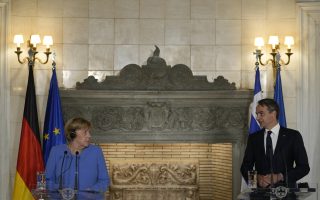More Turkish aggression could bring in sanctions, PM tells MEPs

Turkey has not fundamentally changed its policy toward Greece, but if it becomes more aggressive, the European Union can always hit it with sanctions, Prime Minister Kyriakos Mitsotakis sad during the meeting of the center-right European People’s Party (EPP) in Strasbourg.
He also thanked the MEPs of the EPP for their support to Greece.
Mitsotakis was in Strasbourg to attend a memorial ceremony for the late President of the European Parliament, David Sassoli, who died on January 11.
In the book of condolences, the prime minister paid tribute to a “true European leader”, noting that the late President “always fought for the promotion of social solidarity.”
“I felt that it was my obligation to pay tribute to David Sassoli,” Mitsotakis told his EPP colleagues. “I remember with emotion his presence in Athens last May, when he was with us to celebrate the 40th anniversary of Greece’s accession to the (then) European Economic Community,” he added.
In his speech to the EPP, Mitsotakis addressed the pandemic, the economy – focusing on rising prices, especially energy prices – and its, prospects in 2022, the need for Europe’s strategic autonomy, the Greek-French strategic cooperation, Turkish provocations and the importance of the Eastern Mediterranean in supplying energy to Europe.
“I would like to thank you all again for your support, especially when we are accused of alleged human rights abuses and these accusations come from a country not noted for its stellar record in respecting human rights. I am referring to Turkey, of course,” Mitsotakis said.
“This is why this two-tier approach we have taken, extending a hand of friendship while at the same time preparing a set of possible dissuasive measures that could be used if Turkey returns to an aggressive attitude towards Greece and Cyprus is still, in my opinion, the right approach”, he added.
Mitsotakis also underlining the strategic importance of the Eastern Mediterranean to Europe’s energy needs and policy.
“The Eastern Mediterranean is becoming much more important in terms of exploring alternative energy sources, such as natural gas in the form of LNG, which could be exported from Egypt…We are also actively promoting electricity interconnections with Africa, in our case with Egypt,” Mitsotakis said.
Describing Greece’s initiatives to expand vaccination coverage, the prime minister said that Monday was the first day on which fines are imposed on citizens over 60 who have not been vaccinated. “All I can tell you is that the strategy so far has been very successful. We have increased the vaccination rate by more than 15 percentage points since we announced the strategy, so many people made sure they were vaccinated,” he told the MEPs.
We never stopped reforms
On the economy, Mitsotakis underlined that he expects GDP growth in 2021 will likely exceed 8%. “We also had a great tourist season. I believe that there is a prospect for a lasting, long-term recovery for the Greek economy. I think we are now seeing the benefits of the structural reforms we have implemented over the last 30 months. In fact, we never stopped economic reforms during the pandemic to make it more competitive. And now we have the additional funds of the Recovery and Resilience Fund,” he said.
Referring to the rise in inflation and energy prices in particular, he stressed the measures taken by the Greek government to support households and businesses and called for the European Commission to consider introducing its own measures. “This is an area that concerns us and, of course, we will continue to encourage the Commission to explore the toolkit in support of the Member States,” he said.
Regarding immigration, Mitsotakis noted that Greece has “proved that effective protection of external borders with full respect for fundamental rights is a strategy that can really work,” adding that “this is only one aspect of the problem.”
“One of the areas in which we need to work much more systematically is the issue of returns at European level. It is a big problem for all the countries that are on the external borders. But overall, I believe that we have proved that the strategy we have implemented works in practice,” he said.
While in Strasbourg, Mitsotakis had a series of short one-on-one meetings with President of the European Council Charles Michel, the Prime Ministers of Italy Mario Draghi, Croatia’s Andrej Plenkovic, Luxembourg’s Xavier Bettel, Malta’s Robert Abela, and the Speaker of the Parliament of the Republic of Cyprus, Annita Demetriou.





